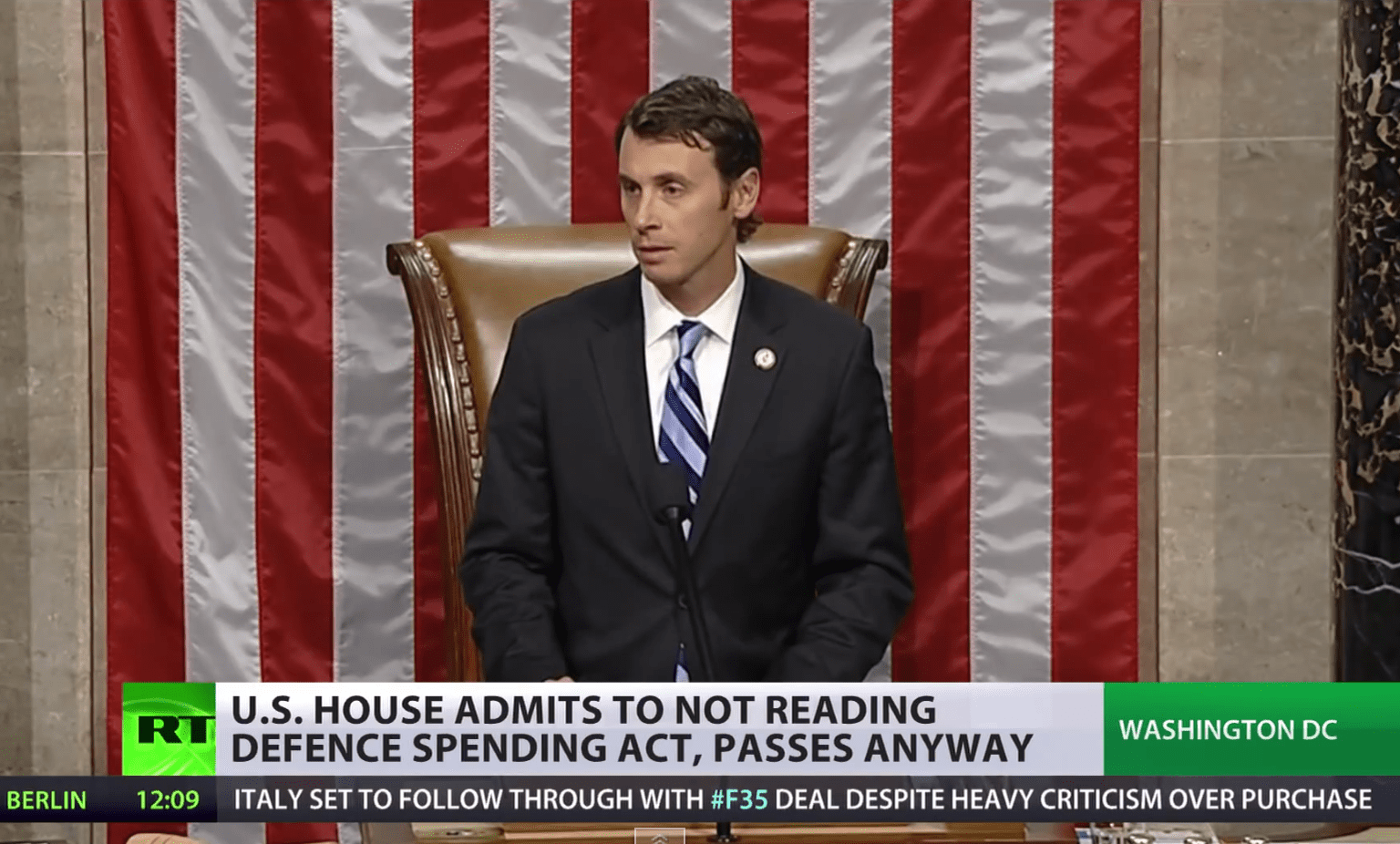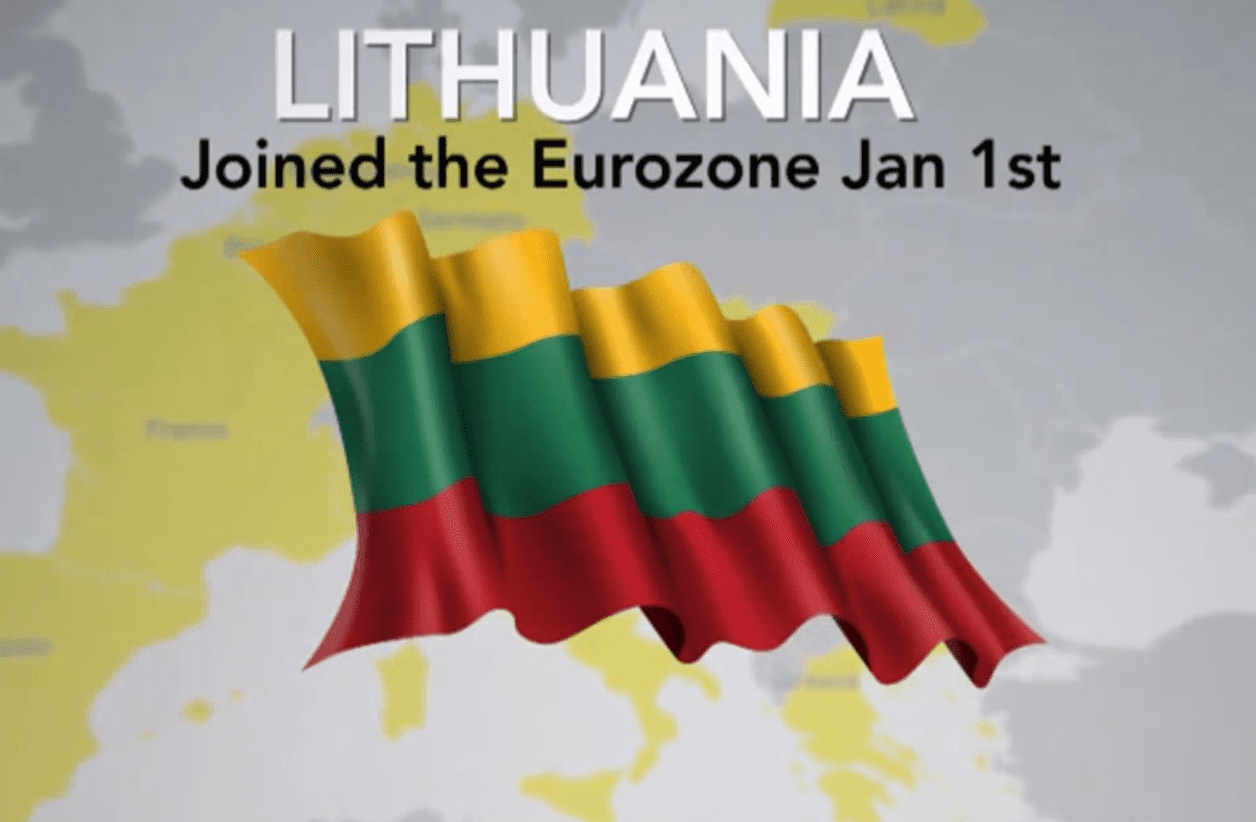Secrets of Bank Involvement in Oil Revealed
For years I have been talking about how the banks have taken control of our civilization.
This week, I want us to look at our current events from a much bigger perspective because the answers to most of our questions regarding oil and other things are often found by looking at the simplest fundamentals.
When oil prices climbed to record highs, we complained. We said that it would slow the pace of the economy and increase our costs of living.
Now that oil prices are falling, economies around the world are beginning to feel the pain causing a huge wave of panic throughout the financial industry. That’s because the last time oil dropped like this – more than US$40 in less than six months – was during the financial crisis of 2008.
Are we now headed on that same path? And if so, why? Why should we be worried if lower oil prices leads to an increase in consumer spending?
Over the last few years, energy producers have raised more than a whopping half a trillion dollars in new bonds and loans with next to zero borrowing costs – courtesy of the Fed.
This low-borrowing cost environment, along with deregulation, has been the goose that laid the golden egg for every single energy producer. Because of this easy money, however, energy producers have become more leveraged than ever; leveraging themselves at much higher oil prices.
But with oil suddenly dropping so sharply, many of these energy producers are now at serious risk of going under.
In a recent report by Goldman Sachs, nearly $1 trillion of investments in future oil projects are at risk:
Via Bloomberg:
“In a stunning analysis this week, Goldman Sachs found almost $1 trillion in investments in future oil projects at risk. They looked at 400 of the world’s largest new oil and gas fields — excluding U.S. shale — and found projects representing $930 billion of future investment that are no longer profitable with Brent crude at $70. In the U.S., the shale-oil party isn’t over yet, but zombies are beginning to crash it.”
It’s no wonder the costs of borrowing for energy producers have skyrocketed over the last six months.
According to the Bank of America Merrill Lynch, yields on junk-rated energy bonds has nearly doubled since June, from 5.7 percent to a more-than-five-year high of 9.5 percent last week.
That’s because many of the companies are already on the brink of default, and unable to make even the interest payments on their loans.
For example, Connacher Oil and Gas has around $1 billion in debt and has recently hired BMO as an advisor to review its “liquidity and capital structure.”
Southern Pacific just hired RBC to help raise money and advise on quarterly interest payments it can’t make on C$432 million of bonds.
If oil continues in this low price environment, many producers will have a hard time meeting their debt obligations – meaning many of them could default on their loans. This alone will cause a wave of financial and corporate destruction. Not to mention the loss of hundreds of thousands of jobs across North America.
But that’s not even the biggest problem.
CLICK HERE to Share Your Thoughts
A Zero Sums Game
It would be absurd to think that as oil prices fall, oil production will just stop.
The big players in the oil industry have experienced oil’s boom and bust, many times over. The biggest of them – such as Exxon Mobil and Chevron – survive through the downturns because they are involved in all aspects of energy production such as drilling, refining, and other downstream operations. These guys are hedged because as oil prices fall, other aspects of their business improve.
Other big players in the industry hedge their oil production against falling prices.
For example, Calgary-based EnCana Corp. has already hedged more than 30,000 barrels a day of expected oil production between July and December of this year at an average WTI price of US$97.34 a barrel.
Cenovus Energy Inc. has hedged more than 14,000 barrels a day of expected 2015 production at an average Brent price of CAD$113.64.
Many companies may be able to escape this downturn in oil prices with cash flows largely intact because they have locked in future sales at much higher prices.
Locked and Loaded
Oil companies often hedge themselves against the volatility of oil prices by taking up a position in the oil futures market, selling short enough oil futures contracts in the futures market to cover the quantity of oil to be produced.
A futures contract gives the buyer of the contract the right and obligation to buy oil at the price at which he buys the futures contract.
Conversely, the contract gives the seller of the contract the right and obligation to sell the underlying commodity at the price at which he sells the futures contract.
But if oil companies are the sellers, who are the buyers?
Too Big to Fail
There’s really only one group of investors that can soak up the amount of global oil futures contracts: the Big Banks.
Since many oil producers having locked in prices as high as $90-$100 per barrel for 2015, the losers of oil’s drop will be those on the other end of the contract – the banks who have to buy oil for $100 when oil is at $55.
Combine these losses – where the bets are often leveraged – with the potential defaults of the energy sector’s junk debt, and we could witness a domino effect in the overall high-yield, highly-leveraged, debt market as a whole.
But will that be allowed to happen?
First of all, consider that oil futures sold in the paper market are really never settled with physical delivery.
Now consider the following…
Secrets of Big Bank Involvement in Oil
Over the past weeks, I have talked about why the price of oil may have been manipulated down in the short term as a result of geopolitical strategies.
I have also debunked much of the media myths about why oil prices are falling; from a supply glut, to an attack on fracking by the Saudis.
In short, the demand for oil has never been greater; thus, the talks of too much supply do not warrant a 40% drop in oil price. (And by demand, I mean actual world consumption, not some paid analyst generated percentage.)
Secondly, if the Saudis were attacking the American shale economy, why would the U.S. continue to sell arms to them?
For example, why would the US Defense Security Cooperation Agency (DSCA) clear yet another major potential sale to Saudi Arabia in August?
If a nation was attacking your economy, would you sell weapons to it?
What has been happening to oil is orchestration at its finest.
Think about it in this simple way:
If you are in control of the world’s reserve currency, but slowly losing that status as a result of devaluation and competition from other nations (see When Nations Unite Against the West: The BRICS Development Bank), what would you do to protect yourself?
You buy assets. Because real hard assets protect you from monetary inflation.
With the banks now holding record amounts of highly leveraged paper from the Fed, why would they not use that paper to buy hard assets?
Bankers may be greedy, but they’re not stupid.
The price of hard physical assets is the true representation of inflation. Therefore, if you control these hard assets in large quantities, you could also control their price. This, in turn, means you can maintain control of your currency against monetary inflation.
And that is exactly what the banks have done.
The True World Power
Last month, the U.S. Senate’s Permanent Subcommittee on Investigations published a 403-page report on how Wall Street’s biggest banks, such as Goldman Sachs, Morgan Stanley, and JP Morgan, have gained ownership of a massive amount of commodities, food, and energy resources.
The report stated that, “the current level of bank involvement with critical raw materials, power generation, and the food supply appears to be unprecedented in U.S. history”
For example:
“…Until recently, Morgan Stanley controlled over 55 million barrels of oil storage capacity, 100 oil tankers, and 6,000 miles of pipeline. JPMorgan built a copper inventory that peaked at $2.7 billion, and, at one point, included at least 213,000 metric tons of copper, comprising nearly 60% of the available physical copper on the world’s premier copper trading exchange, the LME.
In 2012, Goldman owned 1.5 million metric tons of aluminum worth $3 billion, about 25% of the entire U.S. annual consumption. Goldman also owned warehouses which, in 2014, controlled 85% of the LME aluminum storage business in the United States.” – Wall Street Bank Involvement with Physical Commodities, United States Senate Permanent Subcommittee on Investigations
From pipelines to power plants, from agriculture to jet fuel, these too-big-to-fail banks have amassed – and may have manipulated the prices – of some of the world’s most important resources.
The above examples clearly show just how much influence the Big Banks have over our commodities through a “wide range of risky physical commodity activities which included, at times, producing, transporting, storing, processing, supplying, or trading energy, industrial metals, or agricultural commodities.”
With practically an unlimited supply of cheap capital from the Federal Reserve, the Big Banks have turned into much more than lenders and facilitators. They have become direct commerce competitors with an unfair monetary advantage: free money from the Fed.
Of course, that’s not their only advantage.
According to the report, the Big Banks are engaging in risky activities (such as ownership in power plants and coal mining), mixing banking and commerce, affecting prices, and gaining significant trading advantages.
Just think about how easily it would be for JP Morgan to manipulate the price of copper, when they – at one point – controlled 60% of the available physical copper on the world’s premier copper trading exchange, the LME.
How easy would it be for Goldman to control the price of aluminum when they owned warehouses – at one point – that controlled 85% of the LME aluminum storage business in the United States?
And if they could so easily control such vast quantities of hard assets,
how easy would it be for them to profit from going either short or long on these commodities?
Always a Winner
But even still, if for some reason the bankers’ bets didn’t work out, they still wouldn’t lose.
That’s because these banks are holders of trillions of dollars in FDIC insured deposits.
In other words, if any of the banks’ pipelines rupture, power plants explode, oil tankers spill, or coal mines collapse, taxpayers may once again be on the hook for yet another too-big-to-fail bailout.
If you think that there’s no way that the government or the Fed would allow this to happen again after 2008, think again.
Via the Guardian:
“In a small provision in the budget bill, Congress agreed to allow banks to house their trading of swaps and derivatives alongside customer deposits, which are insured by the federal government against losses.
The budget move repeals a portion of the Dodd-Frank financial reform act and, some say, lays the groundwork for future bailouts of banks who make irresponsibly risky trades.”
Recall from my past letters where I said that the Fed wants to engulf you in their dollars. If yet another bailout is required, then the Fed would once again be the lender of last resort, and Americans will pile on the debt it owes to the Fed.
It’s no wonder that in the report, it actually notes that the Fed was the facilitator of this sprawl by the banks:
“Without the complementary orders and letters issued by the Federal Reserve, many of those physical commodity activities would not otherwise have been permissible ‘financial’ activities under federal banking law. By issuing those complementary orders, the Federal Reserve directly facilitated the expansion of financial holding companies into new physical commodity activities.”
I’ll go over the specific details of the report in a later letter, but the conclusion is simple: Banks are not only manipulating prices through paper trades, but they are directly maintaining control via the actual underlying physical commodity.
CLICK HERE to Share Your Thoughts
Fighting Back
The manipulation of commodity prices by the big U.S. banks is not news to one of the biggest buyers of commodities in the world: China.
China has already launched an international gold exchange this past September to become a bigger player in market pricing.
Its actions make complete sense because the price of gold, or any other commodity, should be directly influenced by where it is consumed the most; in gold’s case, that’s China.
With the recent manipulation of oil prices, China has also now approved the launch of the Shanghai oil futures exchange. This will mark the first internationalized futures contract in Chinese history.
China is the second largest oil consumer in the world, so it makes sense that oil will be traded in this nation.
However, in order for this exchange to take off, China will have to finally liberalize its oil sector – a feat which has been expected, but yet to be fulfilled, for quite some time.
But given China’s ambition to make its currency fully convertible, I would expect that China’s oil market will soon be liberalized in order to invite trust amongst foreigners. A new Petrodollar, so to speak.
For traders to trust China’s oil futures platform, China will have to back it with physical inventories. And that, of course, means China will have to buy a lot more oil.
What to Expect for Oil in 2015
As I predicted in my last letter, “The Covert Connection Between Saudi Arabia and Japan,” the manipulation of oil’s drop was meant partly to spur a rise in retail sales just in time for the holiday spending season, and just in time to boost markets before the end of the year.
Retail sales in Britain have now reached a growth not seen in over 25 years.In the U.S., it will be the first time in ten years that the Saturday before Christmas takes the top spot for the highest single sales day of the year. Meanwhile, sales estimates continue to top analyst expectations and the market continues to climb.
That means oil’s drop has done what it was meant to do: hurt Russia, help Japan, boost consumer spending, and send the stock market to new highs.
What does this mean for oil?
Because so many things were leveraged based on oil prices, we’re now at a point that the price of oil can only go up. Otherwise, we would risk a major financial collapse as a result of the debt leverage associated with the commodity.
The scope of the destruction if oil were to continue falling for an extended period of time is yet to be determined. There is more than $4 trillion worth of energy commodity derivatives exposure from some of the largest U.S. banks.
When you consider that many of the energy producers have hedged themselves against oil’s fall, it would be a reasonable assumption that many of the Big Banks’ derivatives exposure consists of bets in the wrong direction.
Will the banks be allowed to fail? Or have the banks quietly protected themselves, knowing that oil will go back up?
A few weeks ago, I suggested that the price of oil is a function of manipulation, and not as much about supply and demand; the question now becomes when the manipulators will boost oil prices back up?
The shale boom over the last few years have led to oil companies in both America and Europe to take on record levels of debt. Much of this debt was financed above a Brent crude price of $70 per barrel (which I believe will be the average price for 2015).
Can Europe handle a financial contagion as a result of falling oil prices, when it already has so many other problems?
The drop in oil prices has already caused a financial disaster for Norway and Russia. If oil’s drop continues, it will do the same for America and Europe.
Debt defaults for oil companies in America have already begun and credit has frozen up. If oil doesn’t bounce back next year, be prepared for a financial disaster contagion. Will the powers that be allow that to happen?
I don’t think so. The question is, at what price does oil still hurt Russia, but prevent a wave of defaults in North America?
I believe it’s between US$70-80 a barrel.
What do you think?
I wish you a Merry Christmas and a Happy New Year.
(There will not be a Letter next week. See you in the New Year!)
Seek the Truth,
Ivan Lo
The Equedia Letter













Thanks for the straight truth on the oil & banks.
Was very enlightening- Good work
We agree to Sanctions against USSR,
But would not agree to drive oil to $50 a bbl
with the help of Saudi?
Why not?
IVAN. thanks for sharing information with the public. The education system does not allow high school graduates to dwell into financing sort of to keep the population dormant. Thanks again for your self made educator.
BANKING at work
===============
you start a bank lets say with $1000.00 real hard core cash asset. You now are able to lend out or create supply and demand 14x the $1k , as far I am aware. Correct me if I am wrong on the 14x ( in Canada) leverage free money or money that does not exist. via loans, mtg, derivatives, insurance etc.
This is the basic idea in banking systems.
The FED and bankers are pretty astute self educated and all bets should be insured via CDIC, insurance contracts etc so that it never stops revolving the demand and supply.
Amazing how Federal Laws are omitted by loop holes. This of course only for the few.
Another words one needs an army to put a stop to this vision on infinite supply and demand.
THE MIGHTY BANKER:
Those of have access to financial information otherwise privy to commoners. They know full well what and when things will evolve up or down. Fool ourselves not its all manipulation of the first kind. and since there are no laws for banker per sey it keeps its wheels greased by repeating itself over and over.
This turn down on markets and oil was much created purposely. So for those with the inside information benefit up or down..The more fluctuation the more money is made.(supply & demand equation) that never fails.
The recent unusual swing up in the indexes tells me that we will see metals and commodities make a move up and this tends to be a seasonal behavior Buy in January sell before May. 90% of time I been alive most money is made between nov. and may.
Rates and specially oil will moderately go up . Economics are not there to sustain higher rates and Russian petro dollars need to be controlled. Unless war breaks out.
In the next email I will share an idea about banking for Canadians for I am one, Oakvilian…
HOW WE CAN TURN AROUND THE WEALTH BEEING ROBBED.. for Canadians, Ottawa should have a printing machine to issue debits and credits at will in a responsible mandate. thus we the people are our own banking institution.
At Least for Residential mortgages as this is the largest debt (robber.. per sey).
I buy my home and instead to borrow $400k from the bankers I borrow from Ottawa.. Ottawa issues an entry in the money machine thus creating a fictious asset in exchange for a real asset, my hard work for each dollar I earn. I then return to Ottawa the 400K in cash asset.
No interest charged on the 400k as this was funds never existed and in LAW no contract is valid unless real assets are exchanged. yet bankers are allowed etc.
Ottawa is now richer by $400k. then multiply this figure by the population etc . Ottawa will very quickly have no debt and a lot of cash flow. for the benefit of the population as a whole. all of us
RETIREMENT NEEDS:
charge me a nominal rate of 3% and this amount to go into my retirement years.
paid back in 300 months the retirement or interest charged is about $168k,, which most Canadians don’t have now to retire and will collect stamps from government like the USA does.
If One decides on a 5%
retirement nest of $298,000.00
With 24% of the Canadian population retiring by 2024 the current cpp and Aos simply not enough
Besides is this all a slave gets rewarded after working 30+ yrs.
================================================
Secondly: Politicians should ask Queen Elizabeth to at least give us the land on which our homes sit on. Here is why.
Lets say the land value $200K
so the $400k + 200K land = $600k purchase.
For land I do not own I am forced to borrow from the BANKER another 200k at 3%/ 25yr amortization= to $294k I have to paid the banker who creates money out of thin air.etc…
who is making the money?????? anybody know.???
=================================================
CANADIAN AVG TAX RATE IS ABOUT 35%
gst/pst another approxx. 15% for a total 50%
Plus Home taxes. police tickets, fishing licence; etc etc..
How much or our gross earnings are we able to retain as savings.
Like I said bankers must be astute in math. They know exactly how the game of control is played.
There is another variable in the complicated equation of world oil price and that is the oil industry infrastructure that is being dismantled. I happen to believe the Saudis aim is to reduce the drilling, completion and pipeline construction phases of the oil and gas industry to some point. That will take some time. . .maybe a year or more. Many of the horizontal well operators are hedged to the point they won’t be hurt so much in 2015. Some will continue to drill for awhile. But once the service companies cut back on personnel they cannot “put the genie back in the bottle”. Service company personnel must find other work to support their families. It probably will only take six months low prices to cripple the service industry but much longer to restore it to the levels of early 2014. I would estimate that crude prices will average in the $70’s in 2015 and continue to slowly increase back to the $100’s in 2 years to 3 years. How this affects the world economy is going to be hard to predict.
This is 1 explanation the other is this is part of an organised attack against Russia
By driving oil prices down to uneconomic levels for Russia, is the West not risking another bond default by Russia, thereby triggering another LTCM-type fiasco? It seems to me that this time around, the West is not in a position of strength to withstand such a default, except for the possibility that banks would have to unload a portion of their commodity hoard if called upon again to support the bond market.
The idea of low prices is also aimed at helping the big guys scoop up developers and pretty much all the cherries impacted by the low prices. They just did this to mining including using algo trading to literally wipe out the explorers. That will make what they bought up far far more valuable in the near future. One person commented that the sharp drop on oil was an artifact. He explained that it was probably coincidence that a bunch of computers decided to sell that day. What a joke. It’s the same script from the mining and metal fiasco. It used to be that the manipulators had to wait a couple decades between rapes. Now it’s semi annually. The public just doesn’t seem to be able to remember what just happened. They also do not see that it is their own governments who are behind all of it! I know all of this is long wave driven and hard to escape but that doesn’t mean it can’t be orderly. We could innovate our way out of it.
Have you considered the $o.5 trillion US$ cash balance Saudia Arabia had at the end of 2013? How much cheaper the arms cost. About 25% discount. That may not be
the in all reason oil collapsed to $43. US$ January 2015.
But world domination of Energy is largely at play.
The move into Ukraine by Russia will likely go down as the biggest
blunder by a world leader in History.
This gave a reason for everything to follow, I dont expect oil to
go much above $60 than down to the $30’s.
The current oversupply is going into tankers and empty holes inthe ground. When those holes fill up, the only thing to do is for oil production to collapse. Than the oil price will balance out.
Greed begets Greed. Even if the cost of money is 2% to finance the stored oil, the cash flow must be high enough to pay the interest after all other costs. ie: one must have a profit to pay for speculation costs.
I say if you want your nose broken just stand in the door way.
Russia is learning a hard lesson in Democracy. China is tagging along and not using or developing there vast oil and LNG reserves for the simple reason Russia will build the pipeline now and when they can no longer send lng to China, China can send it back.
In the end those who still have some thing to sell will still be in business.
Re: Secrets of Bank Involvement in Oil Revealed
Aptly named. At the end of the day, there is one over-riding fact that is at the bottom of the current worldwide financial turmoil, and that is the special privilege that the banks have acquired to be allowed to create ‘money’ out of thin air and, adding insult to injury, are allowed to actually charge interest to the (unsuspecting?) borrower on said ‘money’, secured by the legalities implicit in the obligatory status of a loan. From this stems the enormous power of the banking system and its falsely acquired control over global finances and trade. With such a lucrative and power-bequeathing tool at its disposal, the banking system will stop at nothing to maintain this control. Wars, depressions, epidemics, shortages, endless propaganda and more are all useful tools for the psychopathic bankers to deploy in their insane need for dominance and control. At some point, this greed will destroy itself, as always happens but it will cost the rest of the world dearly in terms of life, liberty and personal welfare; indeed, it already has. Think Iraq, Afghanistan, Libya, Iran, Syria, Ukraine and Greece, just to name a few of the more recent episodes. Sure, there are/were always sub-levels of tyranny, corruption and brutality that could be exploited in a propagandistic sense to justify the ensuing wars and interference, but at the end of the day, it was and is all about maintaining and acquiring global financial hegemony.
The system has no nationality concerns. It is solely concerned with its own power and existence. This is perhaps the message of ‘The Fourth Turning’.